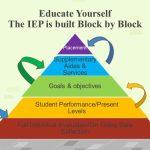The SAT is one of the most widely recognized standardized tests in the United States, with a reputation for being a difficult and daunting exam. Unfortunately, this has led to many myths and misconceptions about the test that can leave students feeling confused and overwhelmed. In this article, we’ll debunk some of the most common myths about the SAT and provide accurate information to help you feel more prepared and confident on test day.
First and foremost, it’s important to address the myth that the SAT is more important than your grades. While a good SAT score can certainly help your chances of getting into a competitive college, your grades are still the most important factor in college admissions. Colleges want to see that you have a strong academic record, so make sure to focus on your grades as well as your SAT score.
Another myth about the SAT is that you can’t improve your score. Many students believe that their SAT score is set in stone, but this simply isn’t true. With practice and preparation, you can improve your score significantly. Practice tests, study materials, and tutoring can all help you improve your performance. Organizations such as The Princeton Review offer SAT test prep courses to help students achieve the scores they need for their college applications.
While some students may be able to achieve a good score with minimal preparation, most will benefit from studying for several months leading up to the test. The more time you have to practice and prepare, the better your chances of success. Online resources such as Khan Academy offer free SAT preparation courses that can help you build your skills and confidence.
Another common myth is that the SAT is only about memorizing vocabulary. While the SAT does include a vocabulary section, it’s only one part of the test. The SAT is designed to assess your critical thinking and problem-solving skills, as well as your ability to read and analyze texts. Practice reading challenging texts and developing your analytical skills to succeed on the SAT’s reading and writing sections.
Finally, it’s important to address the myth that you should guess on every question. While there is a penalty for wrong answers on the SAT, guessing is not always the best strategy. If you can eliminate at least one answer choice, it may be worth taking a guess. However, if you have no idea what the answer is, it’s better to skip the question than to risk losing points.
In conclusion, there are many myths and misconceptions about the SAT, but with accurate information and effective strategies, you can feel confident and prepared on test day. Don’t let these myths hold you back from achieving your goals. By focusing on your academic record, practicing and preparing, and seeking out reliable resources such as The College Board, Khan Academy, and The Princeton Review, you can achieve a strong score and reach your college admissions goals.


